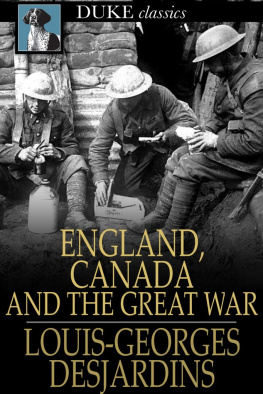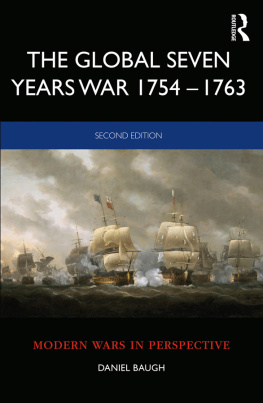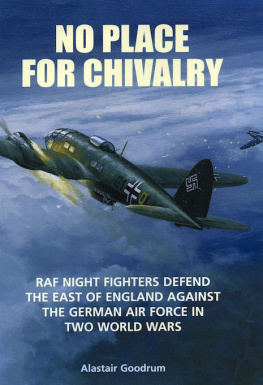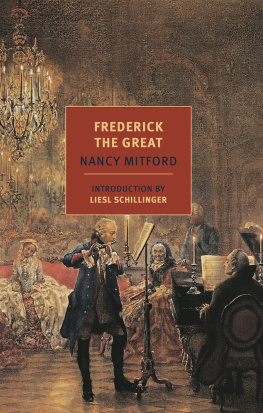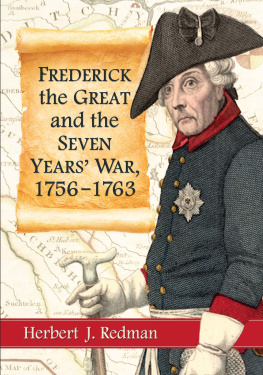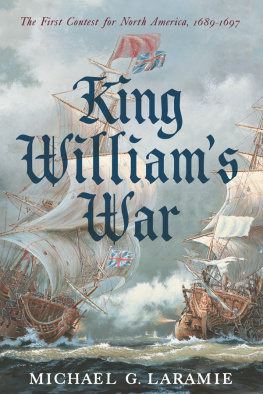ENGLAND IN THE
SEVEN YEARS' WAR
A STUDY IN COMBINED STRATEGY
BY
JULIAN S. CORBETT, LL.M.
LECTURER IN HISTORY TO THE
ROYAL NAVAL WAR COLLEGE
IN TWO VOLUMES
VOL. I
WITH MAPS AND PLANS
This edition is published by PICKLE PARTNERS PUBLISHING
Text originally published in 1907 under the same title.
Pickle Partners Publishing 2011, all rights reserved. No part of this publication may be reproduced, stored in a retrieval system or transmitted by any means, electrical, mechanical or otherwise without the written permission of the copyright holder.
Publishers Note
Although in most cases we have retained the Authors original spelling and grammar to authentically reproduce the work of the Author and the original intent of such material, some additional notes and clarifications have been added for the modern readers benefit.
PREFACE
I N the following pages an attempt has been made to present Pitt's War as it was seen and felt by the men who were concerned with its direction. In every Chancellery in Europe, as well as in our own Cabinet, this part of the widespread Seven Years' War was always spoken of as the Maritime War; and it would seem that no useful apprehension of the way in which it was conducted can be attained unless it be approached from the naval side rather than from the military, as is more commonly done. The Continental theatre of the war proved so rich in brilliant actions at sea they were so fewthat this aspect of the struggle, so fertile in instruction for ourselves, has come to be somewhat unduly obscured. It is true that as an example of the trite doctrine of the influence of sea power we know it well enough. But it is not there that its living value ends. For the actual strategical use of the fleet, and for the principles and even the practice of amphibious war fare, it is as luminously informing as, in their own special sphere, are the subordinate campaigns of Frederick the Great. By this of course it is not meant that the share which the army so abundantly contributed to the result should be neglected or minimised, but only that for a right consideration of the war the army must be regarded primarily as forming an integral part of the maritime force with which it was carried on.
In endeavouring to recover the principles of the art which were so real and familiar to its old masters in those days, it has been found unavoidable to introduce a certain amount of strategical exposition. For this some apology is due to civilian readers. A less technical and more epic treatment of the great contest for mari time empire would doubtless have received a kindlier welcome. Yet in mitigation of the literary transgression it may be urged, even for those who read history for its romance, for its drama and its poetry, that surely the deepest notes of what they seek can only be heard when we watch great men of action struggling, as in some old Greek tragedy, with the inexorable laws of strategy, or riding on them in mastery to the inevitable catastrophe. That success in so presenting the story has been attained it would be mere presumption to expect. All that can be hoped is that those who have ears for the real music of a great historical theme will not resent the sober cadences, without which it cannot be developed.
To officers in the sister services I trust no apology is needed, except to express a most genuine sense of temerity in treading upon ground so full of pitfalls for a civilian. My only excuse is the ungrudging help, criticism, and encouragement which I have received from them in the course of lecturing on the subject- matter of the book at the Naval War College and else where. Surely never did man learn more folly the truth of the old adage, Homines dum docent discunt. I would only beg that if any technical merits be found they may be set down to them. The errors are assuredly my own.
To Captain E. J. Warre Slade, R.N., lately Captain of the War College, and now Director of Naval Intel ligence, I owe in this sense more than I can well express With his ever-ready assistance every point in the story has been thrashed out, and it is not too much to say that without the support of his broad knowledge of the art of war, and his sure judgment, the task would have been beyond my powers.
It is impossible, moreover, to let this attemptsuch as it is go from my hands without acknowledging the deep debt I owe to M. Richard Waddington and his entirely admirable work on La Guerre de Sept Ans. Unfortunately it is not yet finished, and probably none can appreciate its extraordinary value quite in the same way as one who lost its sure guidance in the midst of a diplomatic wilderness.
Second only to this obligation is my debt to Mr. Doughty and his almost exhaustive monograph on the Siege of Quebec. To this would be added Miss Kemballs Correspondence of William Pitt with Colonial Governors, &c. in America, but for the fact that it was not accessible until this part of my work was completed. For this reason it will seldom be found quoted in the notes, though almost all the documents cited for the American theatre are to be found in its pages.
For new material my gratitude is above all due to the Marquis of Lansdowne, who most generously and with every facility permitted me to consult the invalu able Viri-Solar correspondence in his possession. Without access to this series of documents it would have been practically impossible to give anything like an adequate view of the final negotiations for peace.
With regard to other manuscript sources it may be said, for those who are unfamiliar with our records, that the Newcastle and Hardwicke Papers, and all others cited from the Additional MSS. are in the British Museum. Documents cited as Chatham Papers are from the manuscript collection of Pitt's correspondence, &c, deposited in the hands of the Historical MSS. Commissioners at the Record Office, and they are to be distinguished from the selection of them in the Chatham Correspondence, edited by Taylor and Pringle in 1840. Similarly, the Mitchell Papers in the British Museum are to be dis tinguished from the selection printed in the Mitchell Memoirs by Bissett in 1850. The references to Bedford, Grenville, and Rockingham papers are all to the printed editions. The diplomatic, colonial, naval, and military despatches and official papers are in the Record Office, classed respectively as State Papers Foreign, State Papers Colonial, Admiralty Secretary In and Out-Letters, War Office In and Out-Letters. In the same place will be found the ships' Logs and officers' Journals (Admirals and Captains'), Intercepted Correspondence, Secret Orders, &c. Scholars will note with reprehension that some of these papers are quoted not from the originals, but from official copies in the Newcastle or other correspondence. For this I can plead no defence, except the amenities and prompt service of the Manuscript Room of the British Museum as compared with the lingering discomforts (to say no more) of the sepulchre provided for students at the Record Office, aggravated by the prohibition of ink.
In preparing the index, for which I have to thank Mr. Herbert E. Corbett, a special aim has been to render it of service for biographical reference, and it will sometimes be found of assistance where the rank or position of an officer or statesman mentioned in the text is not sufficiently explained for those unfamiliar with the period.


